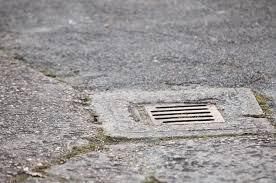How To Unblock A Drain Outside: The Complete Guide
Dealing with a blocked outdoor drain can be a real hassle, leading to flooding, unpleasant odors, and potential damage to your property. Maintaining clear drains is crucial for preventing these issues and ensuring your drainage system functions smoothly. In this complete guide, we’ll walk you through the steps to identify, unblock, and maintain your outdoor drains, so you can keep your property safe and dry.
Identifying the Signs of a Blocked Drain
- Slow Drainage
- Unpleasant Odors
- Overflowing Water
- Gurgling Sounds
Common Causes of Blocked Drains
Leaves and Debris: Leaves, dirt, and other debris can easily accumulate in outdoor drains, especially during the fall or after a storm. These materials can block the flow of water, leading to slow drainage or complete blockages. Regularly clearing away leaves and debris can help prevent this issue.
Tree Roots: Tree roots are a common culprit in outdoor drain blockages. As trees grow, their roots can extend into drain pipes, causing cracks and eventually blocking the flow of water. This can be a tricky problem to solve, often requiring professional intervention to remove the roots and repair the pipes.
Grease and Fat Build-Up: Grease and fat from cooking can solidify in drains, leading to stubborn blockages. While this is more common in kitchen drains, it can also affect outdoor drains if grease is improperly disposed of outside. Using proper disposal methods and avoiding pouring grease down any drain can help prevent these blockages.
Foreign Objects: Foreign objects like plastic, toys, and trash can end up in outdoor drains, particularly in areas with high foot traffic or where children play. These objects can obstruct water flow and cause blockages. Installing drain covers and regularly checking drains for foreign objects can mitigate this risk.
Tools and Materials You'll Need
- Plunger
- Drain Rod
- High-Pressure Hose
- Gloves
- Goggles
- Bleach
- Chemical Drain Cleaner
- Screwdriver
- Bucket
- Drain Cover

Step-by-Step Guide to Unblocking a Drain
1. Safety First
- Wear protective gear, including gloves and goggles, to protect yourself from harmful substances and debris.
2. Remove Drain Cover
- Use a screwdriver to carefully remove the drain cover, setting it aside for reinstallation later.
3. Clear Surface Debris
- Remove any visible debris from the drain opening by hand, placing it in a bucket for disposal.
4. Use a Plunger
- Place the plunger over the drain opening and create a tight seal. Push and pull the plunger vigorously to dislodge the blockage.
5. Employ a Drain Rod
- Insert a drain rod into the drain and push it forward, twisting it to break up and clear the blockage. Continue until you feel resistance ease.
6. High-Pressure Hose Method
- Attach a high-pressure hose to a water source and insert it into the drain. Turn on the water to flush out any remaining debris and blockages.
7. Chemical Drain Cleaners
- If the blockage persists, carefully use a chemical drain cleaner according to the manufacturer’s instructions. Ensure you use appropriate safety measures when handling chemicals.
8. Reassemble and Test
- Replace the drain cover and ensure it is securely fastened. Test the drain by running water to check for proper flow and confirm the blockage is cleared.
Preventive Measures to Keep Drains Clear
- Regular Cleaning: Schedule routine cleaning of outdoor drains to remove debris.
- Install Drain Covers: Use drain covers to prevent leaves and debris from entering.
- Proper Waste Disposal: Dispose of grease, fat, and waste properly to avoid clogs.
- Root Barriers: Install root barriers to prevent tree roots from invading drains.
When to Call a Professional
If you’ve tried all the DIY methods and your drain is still blocked, or if you suspect severe damage or complex issues like tree root intrusion, it’s time to call a professional. For reliable help, consider contacting All City Plumbers, who can provide expert diagnosis and repair to get your drains back in working order.
Conclusion
Dealing with a blocked outdoor drain can be a frustrating and messy experience, but with the right knowledge and tools, you can tackle most blockages yourself. By recognizing the signs of a blockage, understanding the common causes, and following a systematic approach to unblocking the drain, you can keep your drainage system functioning smoothly. Don’t forget the importance of regular maintenance and preventive measures to avoid future issues. And if the problem persists or seems too complex, don’t hesitate to call in the professionals at All City Plumbers to ensure your drains are clear and your property is protected.











